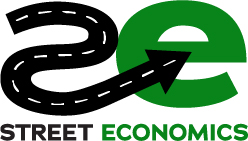The Chicago City Council’s unanimous rejection of Mayor Brandon Johnson’s $300 million property tax hike sends a clear message: the city’s leadership recognizes the critical need to balance fiscal responsibility with maintaining a climate conducive to investment, entrepreneurship, and quality of life. However, this decision also raises questions about how the city plans to address its nearly $1 billion budget shortfall without risking economic stagnation.
This moment demands innovative thinking—not just about budget balancing but about ensuring Chicago’s financial strategies align with long-term economic health. Here’s why this decision matters and what steps the city could take to pivot from a reactionary to a visionary approach.
What the Decision Signals to Investors
Rejecting a major property tax increase avoids one immediate risk: driving out businesses and residents weary of escalating costs. High property taxes have a cumulative chilling effect on economic activity, especially in a city where commercial vacancy rates remain a concern and residential affordability is increasingly under strain.
Chicago’s rejection of this tax increase signals that the city is wary of undermining its competitive edge. This is particularly relevant in retaining and attracting industries and residents at a time when Chicago competes not just with other large U.S. metros but also with mid-sized cities offering affordability and lower tax burdens.
Why This Matters: The refusal to raise property taxes underscores Chicago’s acknowledgment that safeguarding its economic appeal is as crucial as addressing fiscal gaps. Focusing on economic vitality over quick revenue fixes demonstrates a commitment to long-term sustainability.
Reimagining Fiscal Sustainability
Chicago’s fiscal shortfall isn’t just a numbers problem—it’s a systems challenge. A heavy reliance on property taxes has created vulnerabilities when valuations rise, disproportionately affecting middle-class homeowners and small business owners. To tackle this issue, Chicago should reframe its revenue strategy by focusing on:
- Regulatory Streamlining:
- Simplifying processes for new business formation, especially in high-growth sectors such as technology and energy, can generate economic activity and corresponding tax revenue.
- Addressing red tape in permitting and zoning can unlock opportunities for small- to mid-sized developers, filling the gaps left by larger, more risk-averse players.
- Leveraging Public-Private Partnerships (P3s):
- P3s can finance critical infrastructure needs—such as transit-oriented developments or affordable housing—without requiring significant up-front public expenditures.
- Collaborations with private entities can foster innovation in areas like waste management, energy efficiency, and digital infrastructure.
Why This Matters: Expanding revenue sources and streamlining operations will allow Chicago to maintain its appeal while positioning itself as a model for innovative urban fiscal management.
Focusing on Quality of Life as an Economic Driver
The quality of life in a city is not just an attractor for residents but also for talent and investment. As Chicago grapples with its budgetary challenges, a renewed emphasis on quality-of-life improvements could pay dividends.
- Targeted Investments in Public Spaces: Beautification of parks, transit hubs, and main streets can make neighborhoods more livable, encouraging both residential stability and local business activity.
- Opportunity Development: By directing investments to underserved areas, Chicago can close opportunity gaps and foster inclusive growth that benefits the entire city.
Why This Matters: Quality of life drives population retention, which in turn drives the economic base. Investments here are as much about long-term economic resilience as they are about equity.
The Risk of Incrementalism
While the council’s decision avoids a politically unpalatable tax hike, incremental measures like alcohol or garbage fees might not be enough to address structural issues. Chicago needs to avoid a “Band-Aid approach” and instead pursue comprehensive, high-impact strategies.
- The Big Picture: Without a coherent plan to balance its books, Chicago risks destabilizing its investment climate further. Economic uncertainty makes it harder to recruit new employers, exacerbating the very revenue challenges the city is trying to fix.
- The South Beach Lesson: Like the South Beach revitalization story, Chicago’s transformation hinges on entrepreneurial energy, storytelling, and bold strategies beyond traditional solutions. The city must identify and leverage its unique assets to drive future growth.
A Flaristic Perspective
Chicago’s budget crisis can become a catalyst for rethinking urban economic development. By embracing a BusinessFlare strategy of Preserve, Enhance, Invest, Capitalize, and Expose (P.I.E.C.E.), Chicago can:
- Preserve its reputation as a global business hub by avoiding policies that drive away talent and investment.
- Enhance its regulatory environment to foster innovation and equity.
- Invest strategically in infrastructure and public services that yield measurable returns.
- Capitalize on its unique assets, from its cultural scene to its burgeoning tech ecosystem.
- Expose the hidden stories that make Chicago distinct and attractive to businesses and residents alike.
Why This Matters: At its best, Chicago can lead the way in showing how cities under financial strain can not only survive but thrive by embracing innovation and equity in their growth strategies.
In this pivotal moment, Chicago’s leadership has a chance to redefine the city’s future—not just by solving today’s problems, but by laying the groundwork for enduring prosperity. The question is: will they seize it?




Comments are closed